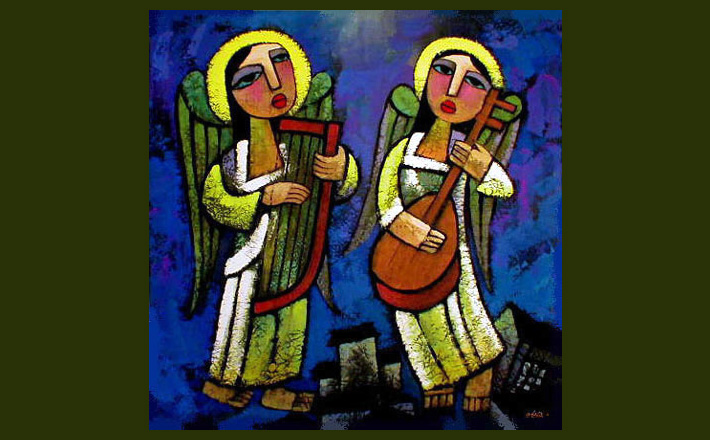Commentary on 1 Kings 18:20-21 [22-29] 30-39
1 Kings 18:20-40 contains one of the most memorable Elijah narratives.
The great prophet of Yhwh summons the prophets of Baal and Asherah (well known deities in Syria-Palestine) at Mount Carmel for a contest of the gods. At stake is Israel’s allegiance to Yhwh (“How long will you go limping with two different opinions? If the Lord is God, follow him; but if Baal, then follow him.”), and finally whether Israel will heed the first commandment: “You shall have no other God’s before me” (Exodus 20:3).
Elijah begins with an accusatory question addressed to the people: “How long will you go limping with two different opinions? If the Lord is God, follow him; but if Baal, then follow him” 1 Kings 18:21). The people’s unwillingness to choose is exemplified by their lack of a response (v. 21). But for the prophet Elijah, indecision is not religiously neutral ground. They cannot worship both Baal and Yhwh, for to trust the former is to reject the latter. Indecision is not neutral ground. This point is underscored by Elijah’s reference to “limping” (cf. 2 Samuel 4:4). According to him, their indecision is not morally neutral ground; in fact, their unwillingness to choose actually results in self-inflicted injury.
Needless to say, while the people aren’t up for choosing between Baal and Yhwh, they are most certainly up for a battle of the gods (1 Kings 18:22-24). Elijah proposes a contest by fire. He calls for two bulls, cut in pieces, laid on wood. The prophets would then “call on the name of” their respective gods. The God who “answers by fire is indeed God” (v. 24).
As 1 Kings 18:24 suggests, what Elijah is proposing is about much more than mere pyrotechnics. In fact, this narrative isn’t fundamentally a power contest at all. At stake is which God answers prayer. In other words, whom could the people truly trust with their petitions? Which of the two deities would actually deliver on promises? And the narrative makes abundantly clear that there can be only one answer to these questions.
The prophets of Baal do all they can to gain their god’s attention, even to the point of inflicting harm on themselves. They “called on the name of Baal from morning until noon” (1 Kings 18:26), “they cried aloud” (v. 28), they even “cut themselves with swords and lances,” and “they raved on until the time of the offering of the oblation” (v. 29). The narrator leaves absolutely no room for doubt about the status of Baal: “there was no voice, no answer, and no response” (v. 29). Elijah loses no time in mocking his opponents: “Cry aloud! Surely he is a god; either he is meditating, or he has wandered away, or he is on a journey, or perhaps he is asleep and must be awakened” (v. 27). The name of Baal is finally useless, and trust in him is shown to be misplaced.
A similar story is found in Bel and the Dragon, one of the “apocryphal” additions to Daniel. In this story, Daniel proposes a contest, to see if Bel (a title of the Babylonian deity, Marduk) will actually consume the offerings left to him by the priests. Not only does Bel not show any appetite for his meal, Daniel proves that the priests and their families actually eat the meal. After the priests left their offering and the doors of the temple were sealed, Daniel coated the floor of the temple with ashes. In the morning, after opening the sealed temple, the footprints of the priests and their families were found in the temple. Bel, like Marduk, was shown to be no god at all. Polemics against the non-existence of foreign deities was common in late Israelite literature (cf. Isaiah 44:9-20; 45:20-25; 46:1-7).
But Elijah approaches prayer in an entirely different manner to the prophets of Baal. He repairs the altar to Yhwh (1 Kings 18:30), and in a way that brings to mind God’s promises to Israel: “Elijah took twelve stones, according to the number of the tribes of the sons of Jacob, to whom the word of the Lord came, saying, “Israel shall be your name”; with the stones he built an altar in the name of the Lord” (vv. 31-32). In a strong allusion to Jacob’s own contest with a “man,” Elijah points to the moment when “Israel” received its name (Genesis 32:29). Elijah, like Jacob, was also engaged in a deadly contest. What gives Elijah prayerful access to the one true God is God’s name and God’s promises. By these alone does Elijah prevail over the prophets of Baal, who have no ground for their hope. What the false prophets find is a god who is hidden, out of sight and out of earshot.


May 29, 2016